MAX6902引腳配置

概述
該應(yīng)用筆記演示了MAX6902實(shí)時(shí)時(shí)鐘與8051微控制器的接口方式,并提供了基本接口程序的例程。文中采用的微控制器為DS2250,軟件用C語言編寫。工作原理
該程序通過微控制器的四個(gè)通用端口控制SPI總線,微控制器向MAX6902發(fā)送一個(gè)控制/地址指令,啟動(dòng)數(shù)據(jù)傳輸;隨后,微控制器向MAX6902發(fā)送其它數(shù)據(jù)或提供SCLK,根據(jù)命令字節(jié)發(fā)送或接收數(shù)據(jù)。電路原理圖如圖1所示,軟件如圖2所示。

圖1. 子卡原理圖(PDF下載)
圖2. 代碼列表
/***************************************************************************/ /* DEMO6902.c This program is for example only and is not supported by */ /* Dallas Semiconductor Maxim */ /***************************************************************************/ #include/* Prototypes for I/O functions */ #include /* Register declarations for DS5000 */ /***************************** Defines ********************************/ sbit CS = P0^0; sbit SCLK = P0^1; sbit DIN = P0^2; sbit DOUT = P0^3; /*********************** Function Prototypes **************************/ void writebyte(); void initialize(); void disp_clk_regs(); void burstramread(); void burstramwrt(); /************************* Global Variables ***************************/ uchar cy, yr, mn, dt, dy, hr, min, sec, msec, CPOL = 1; void set_spi() /* ----- enable DUT with SCLK preset based upon CPOL ----- */ { if(CPOL) { CS = 1; /* make sure CS is high */ SCLK = 1; /* set SCLK for CPOL=1 */ CS = 0; /* enable DUT */ } else { CS = 1; /* make sure CS is high */ SCLK = 0; /* set SCLK for CPOL=0 */ CS = 0; /* enable DUT */ } } void reset_spi() /* ----- reset DUT using SPI protocol ----- */ { if(CPOL) { CS = 1; SCLK = 1; } else { CS = 1; SCLK = 0; } } void wbyte_spi(uchar W_Byte) /* ----- write one byte to DUT ----- */ { uchar i; CS = 0; if(CPOL) { for(i = 0; i < 8; ++i) { DIN = 0; if(W_Byte & 0x80) { DIN = 1; } SCLK = 0; SCLK = 1; W_Byte <<= 1; } } else { for(i = 0; i < 8; ++i) { DIN = 0; if(W_Byte & 0x80) { DIN = 1; } SCLK = 1; SCLK = 0; W_Byte <<= 1; } } } uchar rbyte_spi(void) /* ----- read one byte from DUT ----- */ { uchar i; uchar R_Byte; uchar TmpByte; R_Byte = 0x00; DOUT = 1; /* set up port for read */ CS = 0; if(CPOL) { for(i=0; i<8; ++i) { SCLK = 0; TmpByte = (uchar)DOUT; SCLK = 1; R_Byte <<= 1; R_Byte |= TmpByte; } } else { for(i=0; i<8; ++i) { SCLK = 1; TmpByte = (uchar)DOUT; SCLK = 0; R_Byte <<= 1; R_Byte |= TmpByte; } } return R_Byte; } void writebyte() /* ----- write one byte, prompt for address and data ------ */ { uchar add; uchar dat; /* Get Address & Data */ printf(" Enter the Read Address ADDRESS (1,2,3...):"); scanf("%bx", &add); printf(" DATA (0-ff):"); scanf("%bx", &dat); set_spi(); wbyte_spi(add); wbyte_spi(dat); reset_spi(); } void initialize() /* ----- init clock data using user entries ----- */ /* Note: NO error checking is done on the user entries! */ { set_spi(); wbyte_spi(0x0f); /* control register write address */ wbyte_spi(0x00); /* clear write protect */ reset_spi(); printf(" Enter the year (0-99): "); scanf("%bx", &yr); printf("Enter the month (1-12): "); scanf("%bx", &mn); printf("Enter the date (1-31): "); scanf("%bx", &dt); printf("Enter the day (1-7): "); scanf("%bx", &dy); printf("Enter the hour (1-23): "); scanf("%bx", &hr); hr = hr & 0x3f; /* force clock to 24 hour mode */ printf("Enter the minute (0-59): "); scanf("%bx", &min); printf("Enter the second (0-59): "); scanf("%bx", &sec); set_spi(); wbyte_spi(0x3f); /* clock burst write */ wbyte_spi(sec); wbyte_spi(min); wbyte_spi(hr); wbyte_spi(dt); wbyte_spi(mn); wbyte_spi(dy); wbyte_spi(yr); wbyte_spi(0); /* control */ reset_spi(); set_spi(); wbyte_spi(0x13); wbyte_spi(0x20); /* century data */ reset_spi(); } void disp_clk_regs() /* --- loop reading clock, display when secs change --- */ { uchar mil, pm, prv_sec = 99; while(!RI) /* Read & Display Clock Registers */ { set_spi(); wbyte_spi(0xbf); /* clock burst read */ sec = rbyte_spi(); min = rbyte_spi(); hr = rbyte_spi(); dt = rbyte_spi(); mn = rbyte_spi(); dy = rbyte_spi(); yr = rbyte_spi(); cy = rbyte_spi(); /* dummy read of control register */ reset_spi(); set_spi(); wbyte_spi(0x93); /* century byte read address */ cy = rbyte_spi(); reset_spi(); if(hr & 0x80) mil = 0; else mil = 1; if(sec != prv_sec) /* display every time seconds change */ { if(mil) { printf(" %02bX%02bX/%02bX/%02bX %01bX", cy, yr, mn, dt, dy); printf(" %02bX:%02bX:%02bX", hr, min, sec); } else { if(hr & 0x20) pm = 'P'; else pm = 'A'; hr &= 0x1f; /* strip mode and am/pm bits */ printf(" %02bx%02bx/%02bx/%02bx %02bx", cy, yr, (mn & 0x1f), dt, dy); printf(" %02bx:%02bx:%02bx %cM", hr, min, sec, pm); } } prv_sec = sec; } RI = 0; /* Swallow keypress to exit loop */ } void burstramread() /* ------ read RAM using burst mode ----- */ { uchar k; printf(" MAX6901 RAM contents: "); set_spi(); wbyte_spi(0xff); /* ram burst read */ for (k = 0; k < 31; k++) { if(!(k % 8) ) printf(" "); printf("%02.bX ", rbyte_spi() ); } reset_spi(); } void burstramwrt(uchar Data) /* ------ write RAM using burst mode ------- */ { uchar k; set_spi(); wbyte_spi(0x7f); /* ram burst write */ for (k=0; k < 31; k++) { wbyte_spi(Data); } reset_spi(); } main (void) /* ----------------------------------------------------- */ { uchar i, M, M1; while (1) { printf(" MAX6902 build %s ", __DATE__); printf("CI. Initialize MAX6902 "); printf("CW. Write Byte "); printf("CR. Read Time "); printf("RW. Write RAM "); printf("RR. Read RAM "); printf("Enter Menu Selection: "); M = _getkey(); switch(M) { case 'C': case 'c': printf("\rEnter Clock Routine to run:C"); M1 = _getkey(); switch(M1) { case 'I': case 'i': initialize(); break; case 'R': case 'r': disp_clk_regs(); break; case 'W': case 'w': writebyte(); break; } break; case 'R': case 'r': printf("\rEnter Ram Routine to run:R"); M1 = _getkey(); switch(M1) { case 'R': case 'r': burstramread(); break; case 'W': case 'w': printf(" Enter the data to write: "); scanf("%bx", &i); burstramwrt(i); break; } break; } } }
 電子發(fā)燒友App
電子發(fā)燒友App









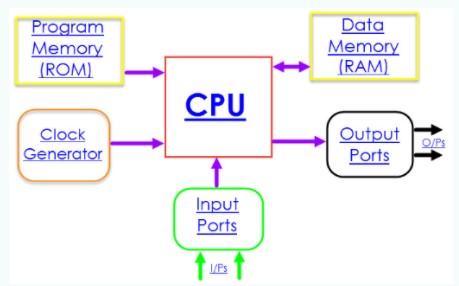
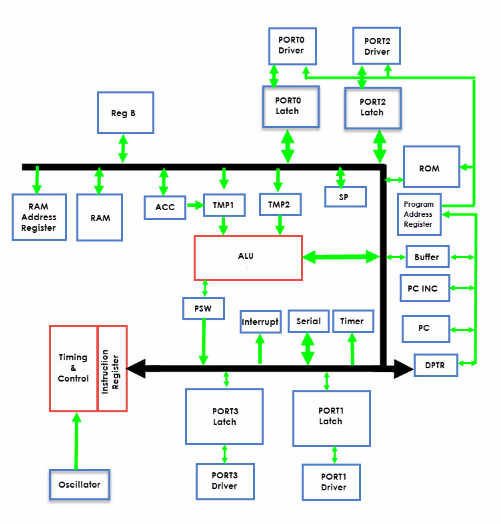
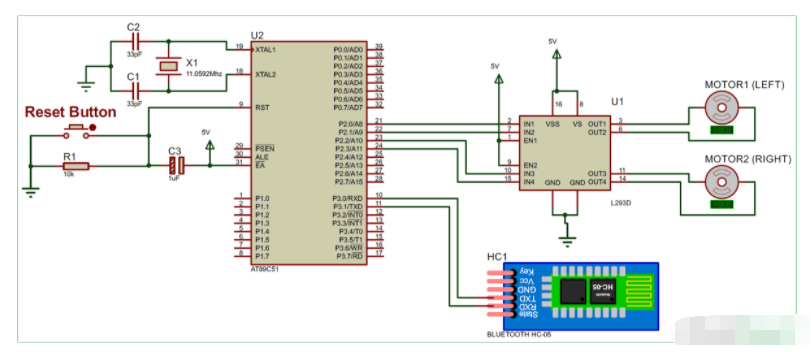

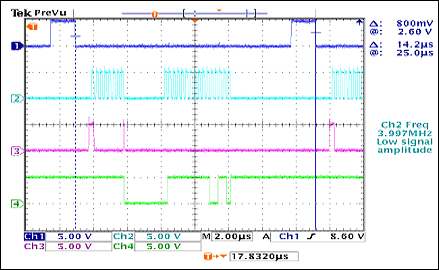
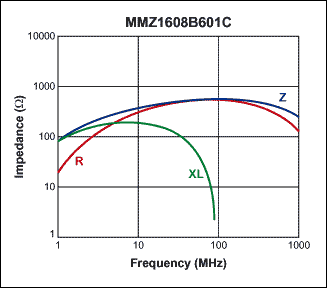
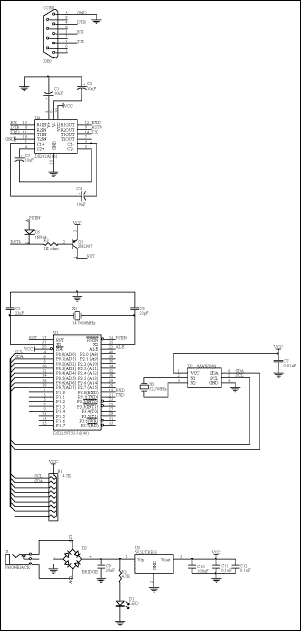
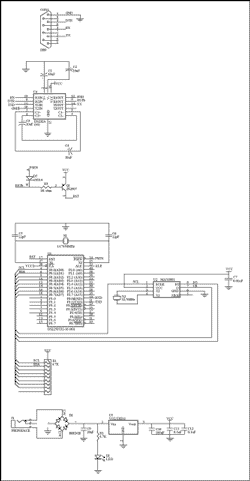
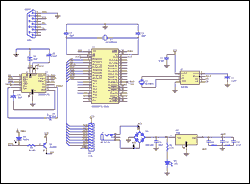

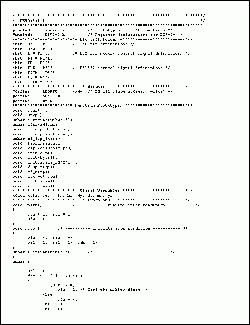
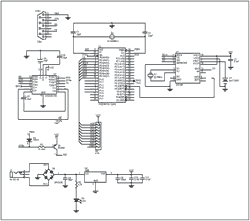


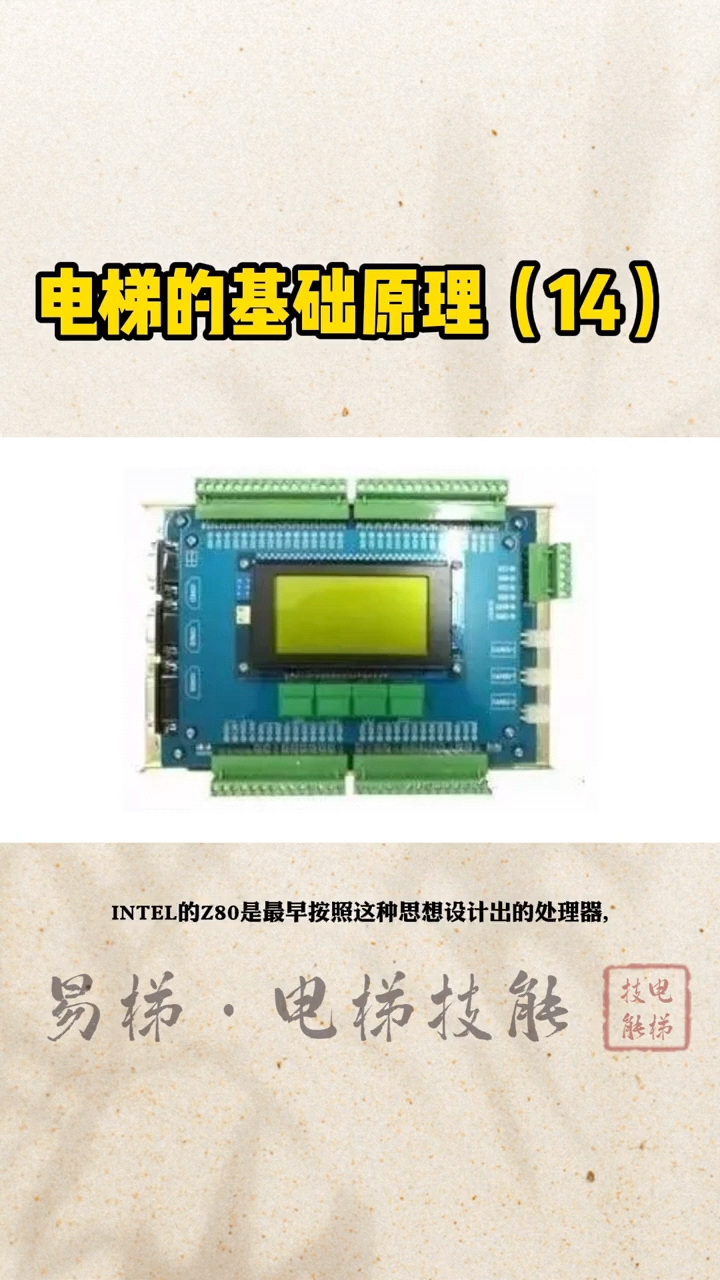
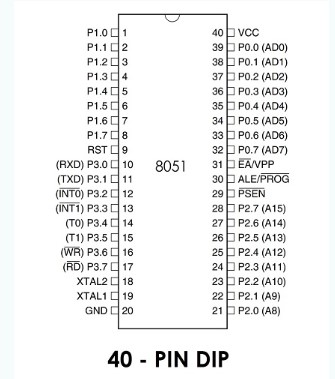
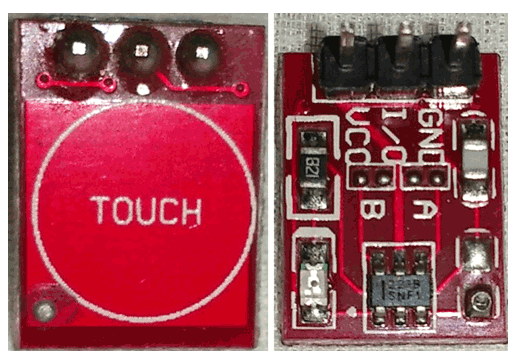

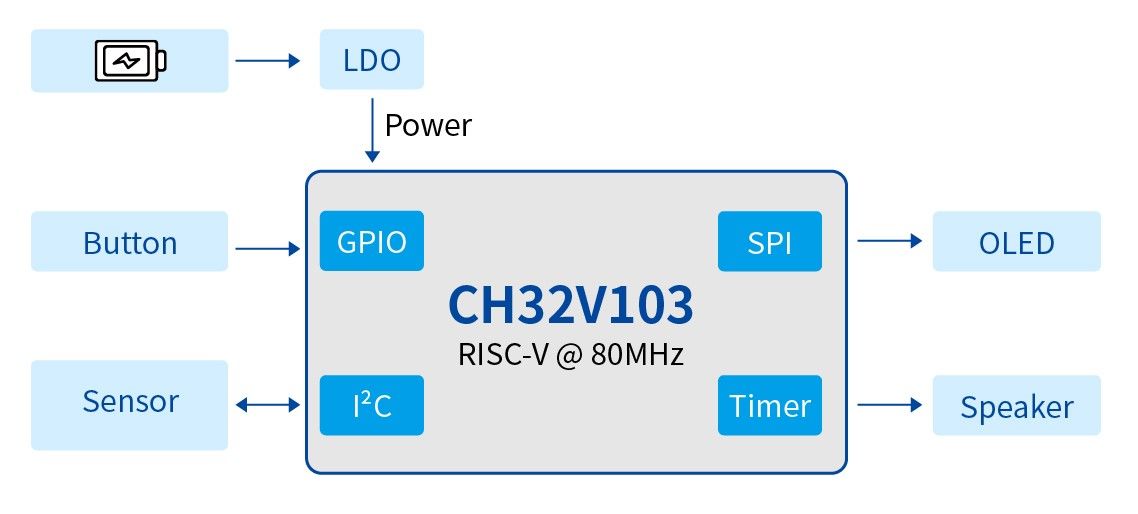



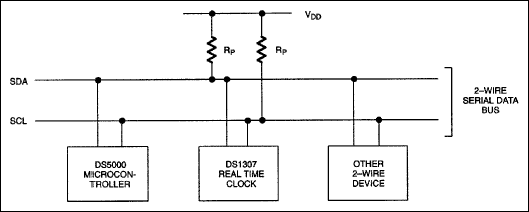











評(píng)論